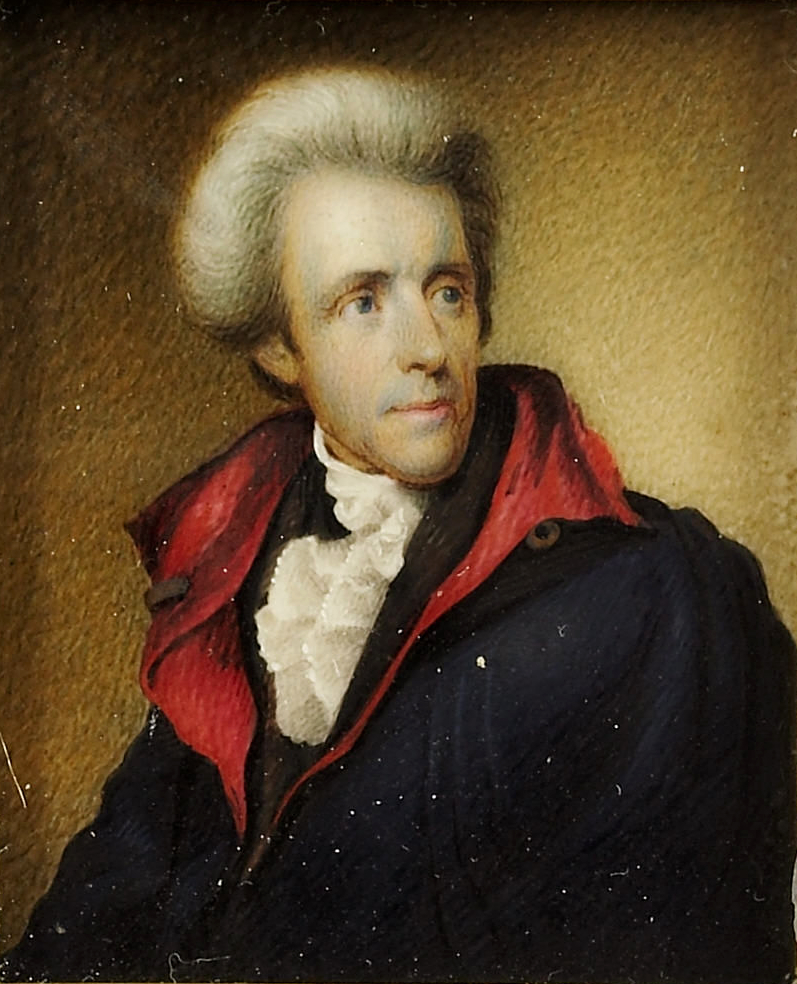Credit: James_Longacre
“The very moment I can rid myself of them (the southeastern native tribes )…I shall certainly do so”.
Such were the words of the man who would embody a nations’ view of the First Americans. I write, of course, of Andrew Jackson.
 It is often asked if Jackson was a victim of outside pressures (political or otherwise) when it came to his decisions concerning the native’s treatment. The answer is an unequivocal and emphatic “NO”. He was a product of the period in which he lived.
It is often asked if Jackson was a victim of outside pressures (political or otherwise) when it came to his decisions concerning the native’s treatment. The answer is an unequivocal and emphatic “NO”. He was a product of the period in which he lived.
The desire to displace the Native Americans had been part of the immigrating Europeans thought patterns from at least as far back as the Plymouth colony. While the colonists accepted the indigenous people’s aid, red men made them nervous. If the natives had just “gone away”, the whites would have liked it better.
As word spread in Europe that the new colonies were the very place to “begin again”, thousands immigrated. Most of them wanted land. The only land available was inhabited by the Native Americans. Since the Europeans believed that the biblical instruction to “subdue the Earth” was still in force (a useful fiction for the greedy), they had no compunctions against taking the tribal lands by whatever means necessary.
As the decades past, European numbers increased by thousands every year, reaching a total of 3.9 million by 1790. The native peoples numbers had decreased every year due to conflicts with the whites and diseases brought from Europe to which the natives had no immunity. As more and more tribes simply disappeared from the Earth or were forced to cede increasing amounts of their land or were just plain ripped off, more and more land became available to speculators and other interested parties. Unfortunately, the more land they acquired, the more they wanted.
This “land fever” was fed by rhetoric from pulpit and podium alike. At every turn, the idea of taking the tribal lands, usually “for their own good” was trumpeted. A young John Quincy Adams, pursuing the “subdue the Earth” idea for his own gain, as so many did, espoused pushing the “unfortunate sons of nature” aside. Ignoring the extensive evidence of native agriculture and the tens of thousands of Native Americans still east of the Mississippi, he wrote “Shall the exuberant bosom of the common Mother…be claimed exclusively by a few hundreds of her offspring? Shall the fields and valleys which a beneficient God has formed to teem with the life of innumerable multitudes, be condemned to everlasting barrenness?”
One New York columnist complained, “This hunger after land seems very early to have taken rise in this Province and is become now a kind of epidemical madness”. More than just the Province, it was taking the entire country. Every imaginable mental gymnastic, truth distortion, misapplied Bible verse and outright lie, all of which eventually resulted in violence against the native peoples, was employed in the white man’s determined campaign to possess native lands. In the words of one speculator, “Hurrah, boys—here goes it—let’s steal all we can!”.
This was the world of Andrew Jackson; a world whose ideals he embraced heartily. As a young man, more than a little ambitious and caught up in money and politics, he often wrote of seceding from the infant Union if it meant opening new economic opportunities. A speculator himself and the friend and/or benefactor of many more speculators, he often advocated the instigation of wars with the tribes to obtain their land. Yet, for all of his blustering, he was not one to take blame upon his shoulders. In later years he wrote to his nephew that “independence of mind and action” could not be borne. He had a nearly pathological need to justify himself as a “real tool” in the hands of “his Creator”. He constantly referred to “bloodied linen” and “butchered women and children” as he mounted his defense of his tactics regarding indigenous people. Sadly, butchered native women and children did not bother him.
As president, he changed his approach to one of actively promoting native removal but kept his actual involvement in it quiet. The usual technique was to fail to uphold treaty stipulations concerning how the individual states could deal with red men. With the states no longer inhibited, they ate the native peoples alive; burning, stealing, pillaging, raping, murdering at will. Jackson’s stance on the matter would then be one of giving the natives a choice: Either stay and deal with the states or move to the lands allocated them west of the Mississippi. He would then proclaim that he had done his best by his “red children” and, if they didn’t have enough sense to do what was best for them, they had to deal with the consequences themselves. Thus, isolating himself from any blame for the horrors that followed.
There is an old Chinese proverb that says “When the student is ready, the teacher will appear”. I think that holds true of movements as well. To restate, “When the movement is ready, the leader will appear”. The political, social and economic climate of the young U.S. had already chosen its direction. All it needed was someone to help it focus its pent-up, greed soaked, murderous energies. It found that leader, that focal point, indeed, that icon, in Andrew Jackson.
Image credit: James Longacre


